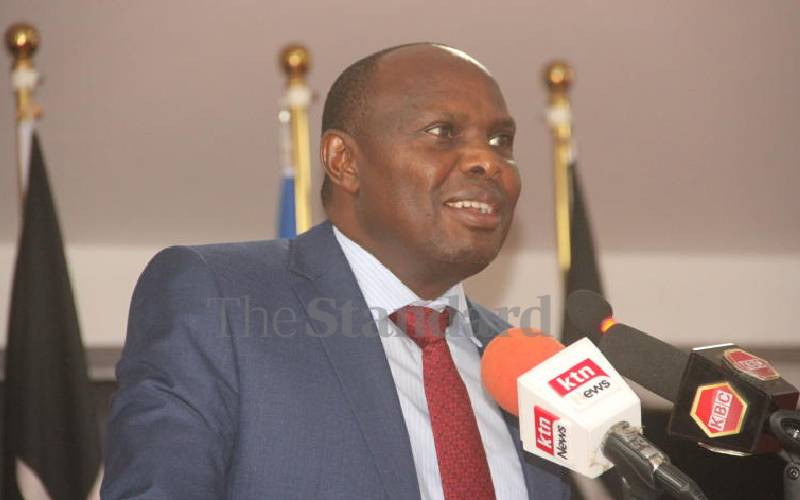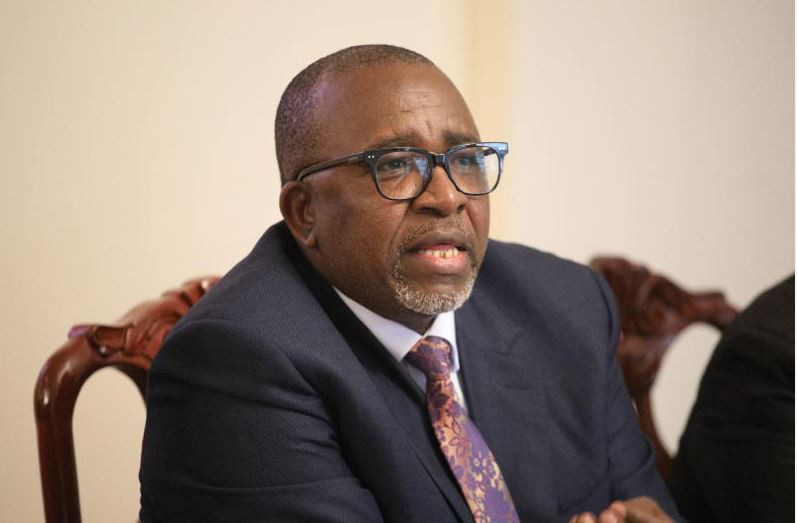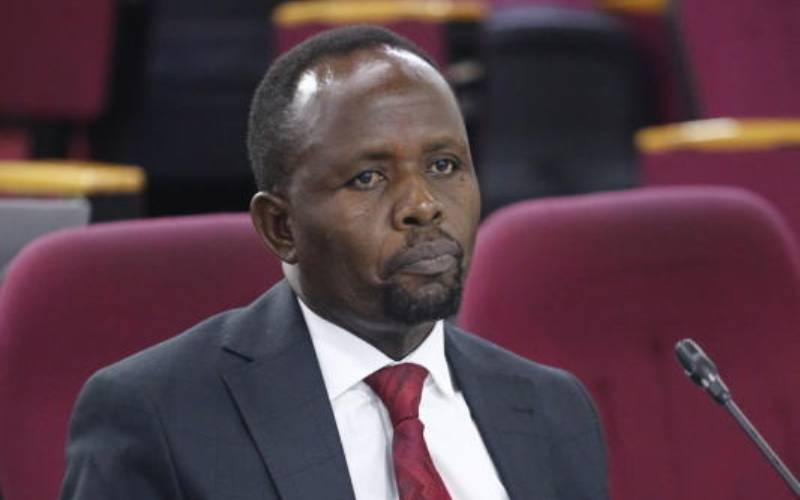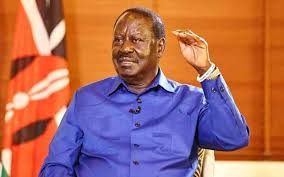KISUMU: National Cohesion and Integration Commission (NCIC) chair Francis Ole Kaparo has called on the Government to prioritise uniting communities in the country to forestall conflicts.
Warning that the country is more divided than ever, Kaparo, a former National Assembly Speaker, called on President Uhuru Kenyatta to make cohesion and integration his number one agenda to save the nation from civil strife.
"Let our leaders support cohesion by engaging in vigorous civic education to make Kenyans understand that we are one country, and we need co-exist peacefully to realise development," he said, adding that Kenyans are capable of turning against one another at the slightest instigation.
"Let us not lie to ourselves that we are cohesive. Let us not fire-fight when problems occur. Let us put out the fire before it consumes all of us," the chairman said.
Mr Kaparo revealed that there are boundary conflicts in 24 counties, a situation he termed as dangerous to the growth and development of the nation.
He was speaking at Kisumu's Tom Mboya College during a cohesion meeting between Nandi and Kakamega opinion leaders.
Kaparo singled out Nandi, Kisumu, Kakamega, Kericho, Baringo, Meru, Mandera, Garissa, Taita Taveta, Kisii, Narok, Samburu, West Pokot and Turkana as some of the counties faced with border conflicts.
NEW RESOLUTIONS
In Thursday’s meeting, Kaparo led other NCIC commissioners in presiding over a meeting to a seek lasting solution to clashes between the Nandi and Luhya communities.
In November last year, a dispute between two neighbours, Joel Kosgey, who was killed in the fight, and Mulanda Piri, who was arrested and arraigned in court, escalated as members of the two communities engaged in violence.
In the violence, houses were torched and property destroyed as the two communities faced off over land in the Kuvasali area.
According to residents, the piece of land which belonged to the late Kosgey's father, situated within the Kuvasali-Nandi escarpment has been a source of conflict since 1980 and was the reason for tribal clashes between the Nandi and Luhya.
The meeting follows two others in Kakamega and Nandi that sought to put in place mechanisms to end the conflicts.
Participants, who included security and local administration personnel, politicians and locals from both counties made resolutions to end the conflict.
Among resolutions reached include prompt arrest and prosecution of criminals, building a market to be called Amani and a police post at the border, land adjudication to determine ownership and construction of a road from Kamungey in Nandi to Kuvasali in Kakamega, to connect the two counties. They also resolved to sell the disputed piece of land and build a polytechnic there.
Stay informed. Subscribe to our newsletter
 The Standard Group Plc is a
multi-media organization with investments in media platforms spanning newspaper
print operations, television, radio broadcasting, digital and online services. The
Standard Group is recognized as a leading multi-media house in Kenya with a key
influence in matters of national and international interest.
The Standard Group Plc is a
multi-media organization with investments in media platforms spanning newspaper
print operations, television, radio broadcasting, digital and online services. The
Standard Group is recognized as a leading multi-media house in Kenya with a key
influence in matters of national and international interest.
 The Standard Group Plc is a
multi-media organization with investments in media platforms spanning newspaper
print operations, television, radio broadcasting, digital and online services. The
Standard Group is recognized as a leading multi-media house in Kenya with a key
influence in matters of national and international interest.
The Standard Group Plc is a
multi-media organization with investments in media platforms spanning newspaper
print operations, television, radio broadcasting, digital and online services. The
Standard Group is recognized as a leading multi-media house in Kenya with a key
influence in matters of national and international interest.








